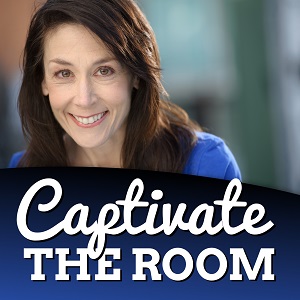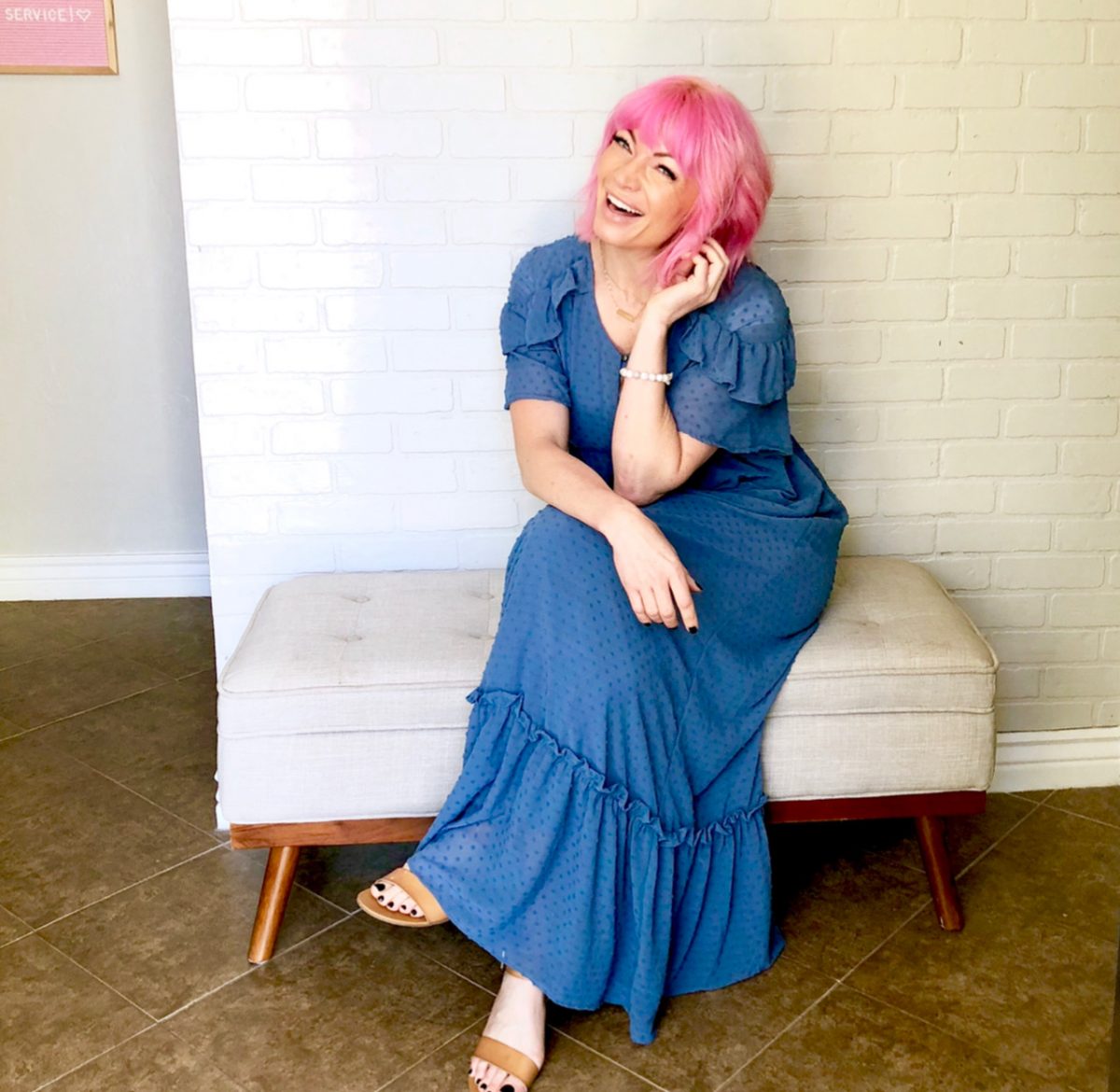Welcome to the podcast. I’m your host, Tracy Goodwin. And I’m so glad to have you with me today as always. Thank you so much for your shares and your downloads and for being a subscriber. I love being on this voice journey with you, and I’ve got a great episode for you today. Today, we’re going to talk about controlling the outcome and your voice.
As I do every year, I took August off and I normally take August off because I have for the last 12 years been involved in a program for youth. I’m not doing that program anymore, but this August I moved across the country in a pandemic.
I’m glad to back! I’ve got some super exciting episodes for you coming up and some incredible interviews with amazing people that you are going to love hearing from.
Now very quickly, I want to let you know, I have two more groups this year. I’m about to do my second to last small group coaching program and then I’ll run it one more time in October. So do not miss out. If you want to jump on now at the current price, make sure you go over to captivatetheroom.com. Look under the work with me tab and/or email me Tracy, t-r-a-c-y@captivatetheroom.com.
I’ve got a lot of great things going on, a lot of cool changes and happenings, and I’m excited to share it with you. It’s been a challenging year. I know for so many of you and I believe that 2021, we’re almost there and it’s going to be different. So, let’s talk about controlling the outcome, and the reason that I picked this topic is that it is so prevalent in my coaching program. When I work with people in solo sessions about all the noise in their head, and there are a lot of different versions of noise that we could talk about. But one of the biggest problems that I see people struggle with without even realizing it is trying to control the outcome. You cannot control the outcome.
What you can control is the conversation. And that’s truly where the power is. And when I put people in that place and teach them how to control the conversation, not only is it very powerful, but it’s so much fun and not in a manipulative, horrible kind of way, but in a ‘controlling the experience’ kind of way. What kind of journey do you want to take me on? That is what is in your control. Which of my senses do you want to touch? Which emotions do you want to connect with me on?
That’s what I mean by controlling the conversation. And you do have the ability to do that when you know how to use your voice to do it. But what people do every day, nonstop is try to control the outcome. Now, what does this mean? Control what you think of me. Control how you’re perceiving me. Control what I get and sometimes it’s simply an outcome-driven and I’m a problem solver, and I’m going to drive to the outcome and solve your problem because I’m going to control the outcome by solving your problem.
But here’s the thing, and you have to embody this. You cannot leave this theory. You cannot control me.
I use this example and you’ve probably heard me give you this example before. I would love for you to like me. I would love for everybody to like me. I would love for everybody to think I was a great voice coach. But at the end of the day, I have no control over what you think of me. I have no control over whether you like me and I don’t even go to that place of the outcome. All the time my clients ask me, “how do you, do it?” And it’s, it’s quite simple. I have it absolutely, 100% trained myself to not go to the outcome and if I go there, I immediately get back to the now.
I have people that I work with that are problem solvers, that are outcome-driven, they are people pleasers. I’ve got people that I’ve worked with over the years that will sit and spend a Sunday trying to figure out every single solitary question that might be asked of them and how they will answer it, that’s trying to control the outcome. I don’t go there.
Now, that’s not to say I don’t prepare because I always prepare. I’ve got a little list of bullet points, a little list of words in front of me now. I haven’t looked at it yet, but it’s there in case I need it. I don’t want to forget anything. But it’s just not on my radar to think “how many downloads will this show get? How will people like this?” Of course, I want you to like it. I want it to make an impact on you, but I cannot control that. But I can control the conversation. Well, let me back up a second. I can control the conversation by creating the journey. But I can also control the conversation and alleviate aversions that you might have to my voice because I know how to do that.
And why I even threw that in is because you could say, “well, even if I do my 150% best thing that I do, my best version of me, Tracy, somebody still might not like me.” That is always true. And that is why you cannot control the outcome, but here’s the thing. You can play all the shades. You can play all the notes. You can play all the elements so that you are not driving any of your potential audiences away, which is what sometimes we do. We stay on one note and somebody has an aversion to that note and we drive people that are truly ours away.
But I’m digressing, I’m going down a rabbit hole and I want to get back to controlling the outcome and you cannot do it. A lot of people are outcome-driven, which is an admirable quality. Successful people are outcome-driven, problem solvers. I’m not a problem solver, I don’t think. but a problem solver and an outcome-driven person will always head to that outcome. “I’m already in the outcome” and you miss the connection.
Because here’s the thing, and I want you to get this, something as simple as being outcome-driven or being a problem solver puts things in your voice that keeps me from connecting with you. You are already in the outcome. You are trying to control the outcome. How I processed that subconsciously is that I’m not a part of it. So not only do I not connect, I’m repelled potentially. So, you’re missing opportunities by trying to control the outcome. People pleasers. This is huge for people pleasers. You’re trying to be what you think we want you to be. And so, you’re neutralizing you. You’re not revealing vocal variety. You don’t have movement in your voice. You aren’t conversationally talking to me. You aren’t grounded in your message. You’re trying to be what you think I want you to be. And here’s the thing, you don’t know what I want you to be, first of all.
Second. I don’t want you to be anything. I just want to know who you are. And I want you to be here in the now with me right now. And what happens when you are in that outcome and controlling that outcome and worrying about getting it right so that you get the result that you want even if that’s me liking you, you don’t end up being you.
I don’t know who you are and I can’t connect because I don’t even know who you are because you haven’t shown me who you are because you’re trying to control the outcome. Does that make sense? See where the rubber band ball of that is? It’s a mask. You’re putting something in place to get you a result that will keep you from getting that very result. People try to control the outcome by deciding what we’re thinking. I see that at least once a day.
Now, you guys know I’m a professed workaholic, borderline. Okay, I’m a workaholic. And I work a lot because I love what I do and I want to make the biggest impact before I leave this planet.
At least once a day, I have someone who has already buffered what they’re putting out because they’re controlling the outcome. They’ve already decided what we’re thinking. And I always come with the same question. “Did you ask me? Did you ask them what they’re thinking?” And people are just gob smacked when I ask that question. They say “well, no.” Well, then who are you to decide when I’m thinking? That’s controlling the outcome at its finest. You can’t control what I’m thinking. And to try to control your delivery because you’ve already decided what I’m thinking. You’ve just sabotaged yourself because let me tell you, and I’ve given you this statistic before in so many shows, you’re probably sick of hearing about it but 99.5% of the time, what you think we’re thinking, we’re not thinking.
Perception and reception. But here’s the truth; people are thinking about themselves. And I don’t mean that to be mean or negative. You know it’s true. Yet, we spend all this time and do all this buffering and try to do all this controlling the outcome because we’ve decided what people are thinking and they’re not even thinking it. I do this in my group constantly. I can hear when somebody is buffering. I can hear when somebody is trying to control the outcome. I can hear everything. And I will say, “what are you thinking about?” And I already know what they’re going to say. They’re going to say, “I was thinking about what you were thinking.” And I always say, “did you ask me?” And they say “no.” And then I say, “so tell me what you thought I was thinking”. And they’ll say, “well, I thought you were thinking X, Y, Z,” and every single time, I was thinking ‘A, B, C’ when they were thinking that I was thinking ‘X, Y, Z.’
I want to know, when are you going to stop falling for the tricks of the subconscious. The more I do this work, the more people I work with, the more I research, the more I am 100% validated in this methodology that I created and that it is a hundred percent true. Just today, and it’s every day, I was working with someone on a driver and we were finding voice habits that they wanted to eradicate., Simple things like filler words and running on and on is what she was working with, re-tells and everything, and I said, “okay, that’s great. That’s the habit, but we’ve got to get to the driver.” Unless we eradicate the driver, we cannot eradicate the voice habit.
If you are someone who has tried voice exercises before, you’ve tried warming up before you’ve tried another methodology or a pure methodology before, and it just didn’t work, it’s because the drivers were not dealt with and a driver can be, ‘I have to control what you’re thinking of me to get what I want’ which is ultimately why we try to control the outcome to get what we want. I want you to like me. I want you to buy from me. I want you to do whatever. But I want you to embody the fact that you can’t control me or anyone else. I can’t control you. I can give you a hundred percent, the best version of me. I can ask you to leave me a podcast review. I can encourage you to join my group. I can ask you to tell three friends who are struggling with their tone of voice to listen to a certain episode. I can do all of that, but I cannot make you do anything including like me, or change your life by rewriting your psychology of the voice story. I can’t, but I can show up 150% and control the conversation. That’s all I have the power to do.
The number of times people are struggling and they are not in the now is profound. And the negative things that are happening in their voice, whatever it is are always because they’re not in the now. They’re trying to control the outcome or other things, and I just want to keep this to controlling the outcome.
But one of my favorite things to watch is when people start to learn how to control the conversation. And I can’t even begin to tell you the number of people that I’ve worked with over the years that have said, “when I met with you on that call to see about working with you, I knew without a doubt I had to work with you.” Or sometimes they’ll say “I knew I had to find the money to work with you”, or “I knew I had to figure out a way to be in your group. How did you do that, Tracy? How did you do that? Because that’s my problem. I can’t land the deal. I can’t close the sale. And it’s super simple. I’m not trying to control the outcome. Do I want to make a sale? Sure. Do I want to change your life? Absolutely. But I can do my best dog and pony show and if you’re not ready or if you are not there because I haven’t made you feel something, you’re not going to buy. I have a full embodiment that controlling the outcome is not the answer. I never try to control the outcome, what I do try to control or do control, and I don’t even like the word control concerning conversation, but I control the experience that I create for you.
I am in the moment having a conversation with you, making you feel that I can help you. And that’s it. And then I let it go. I get off the call and I let it go. Now salespeople might be shuttering in their boots right now saying “no, no, no. You’ve got to follow up. You’ve got to do this. You’ve got to do that. Well, I have a massive referral business and I have pretty awesome sales. I don’t know. What’s the word? The number of sales I close. Closing rate, I guess. I don’t know and it’s literally because I create a journey. I create a feeling. When people get off the phone with me, they know they have to work with me because they know that I can change their life. And I don’t mean to say that in arrogance. It’s literally what I teach people to do. And it’s, it’s not manipulation. It’s about creating an experience, creating an emotional connection.
Manipulation is controlling the outcome. Manipulation is asking all those questions and things that a lot of people will train you to do. And you’re not connected to them, but you’re manipulating people because you think that’s what you’re supposed to do.
What you’re supposed to do is release the outcome and get in the now and create an experience for me. Create an emotional connection and that’s what your voice has the power to do. And 99% of people on earth are not even remotely maximizing that. They’re not playing shades of emotion. They’re not playing moments. They’re not in the now. They’re not controlling the conversation. They keep driving to the outcome and trying to be what they think we want and they’re trying to control what we think or decide what we’re thinking and you’ll never win that way. Never. And I can tell every single time in somebody’s voice when they’re in the outcome because I can’t connect to them. It’s a teeny tiny sound and the listener’s subconscious is picking up on it that you’re not with them. They can’t connect with you and that’s what’s costing you. They can pick up that you’ve already decided what they’re thinking. They can pick up that you think what we’re thinking is that you don’t know what you’re talking about and we’re not thinking that at all, but we pick that up.
You guys have heard me talk about foreshadowing. I don’t know if I’ve done an episode on foreshadowing before shadowing is the same thing. I’m in the outcome. I’ve already decided on the outcome and I’m putting it in my voice now and your subconscious picks up on it and you give me what I don’t want like not buying.
So, I need you desperately to stop driving to the outcome, to release the outcome, to stop trying to control the outcome. You can’t. I’ve been trying for 30 years to prove that you can, and you can’t. Start focusing on creating an experience. What do you want me to experience when I have a conversation with you? When I listen to you speak or when I watch your videos, what do you want my experience to be? That’s what I want you to think about and start working to create that. That’s where your power lies.
The only vocal power you can ever have is in the now and I bet you don’t spend much time there because most people don’t. A lot of times people think that they do and then they realize that they don’t, but there’s always a driver. There’s always a story. That’s got you down the tracks in the future, whatever it is. You think you already know what we’re thinking. You don’t want us to cut you off. You want to convince us that you know what you’re talking about. You want a buffer to keep us from figuring something out. Whatever it is. But you need to let it go. You need to let go of the illusion that you can ever control the outcome. The sooner you do that, the sooner you can get back in the now and control the conversation. Learn how to control the conversation.
All right. Well, that’s it. I’m going to wrap it up there. This was a quick one, but an important one and something that I see everybody struggles with, even the people that tell me they don’t. All right. So, think about that and if you have any questions, don’t hesitate to reach out. If you want to try to jump in on the group coaching program that’s about to start, go to captivatetheroom.com.
But otherwise, that’s it for today until I see you next time, you know what to do. Get out there and speak your truth. Just do it beautifully. Control. I wonder if you know anybody controlling or maybe you’re controlling.




